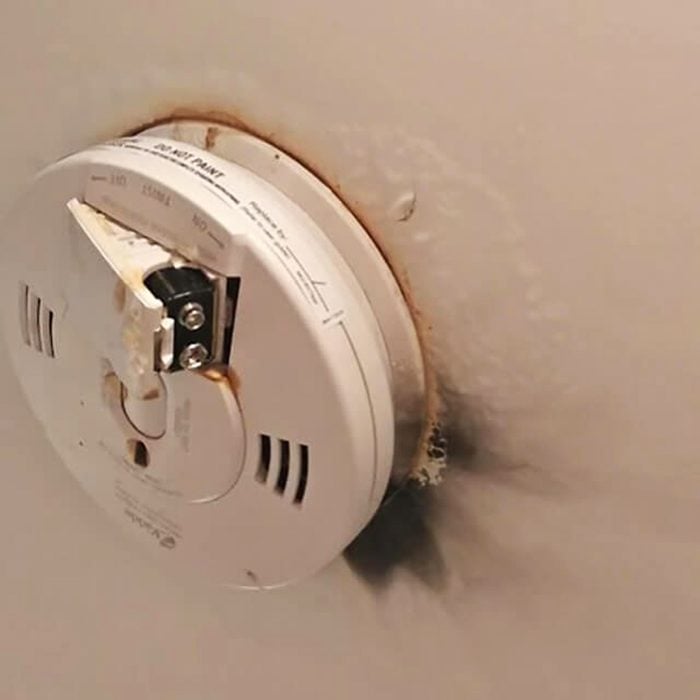1
/
10

The Experience of People Around You
When you start looking for a home, the first thing you find is people with a lot of opinions. It's important to ignore everyone except those who provide grounded advice. Family and friends who have bought one house in their lives probably don't know all of the important details of today's home-buying process. People who have worked in real estate, home improvement and title industries for years probably do know their stuff, so listen to them. When you pick a Realtor, pick one that comes with solid recommendations from around the area and years of successful representation among buyers: It's far too easy to find a Realtor that's just in it for a quick buck.
2
/
10

The Size of the Home You Need
Never—no matter how tempting it is—buy a bigger space than what you currently need (expected family growth included). A big house just means there is more space to maintain, more utility bills to pay and more things that could go wrong. So think about where you have lived before, and how much space your belongings really require. If all of the homes you are looking at are larger than you need, consider looking at condos or townhomes.
3
/
10

Your Loan Approval Numbers and Down Payment Options
Getting pre-approval for a loan isn't an instant lock, but it does give you a very good idea of what sort of mortgage you can handle, making this an important step. Your mortgage approval numbers will also dictate how much you need to consider for a down payment—usually around 20 percent, but that varies for some government FHA loans and individual deals made with sellers. If you find a house that is over your loan pre-approval limit or you cannot afford putting 20 percent down as cash, it's time to move on. It's vital that you stay within your means, no matter how much you fall in love with a house.
4
/
10

What Home Inspections Uncover
Tips for buying a house should always include information on inspections. A home inspection isn't just a formality, inspections frequently uncover serious issues with a house including foundation problems, rot, pest issues, roof damage, mold, improper insulation, out-of-date wiring and much more. You need to know about these issues before you make a final decision. The good news is that a problem often leads to a new offer with the condition that the seller pays to fix the issue before you officially buy it.
5
/
10

The State of the Neighborhood
Take a walk! Go a few blocks in every direction and see what there is to see. How do the houses look? What's going on in the yards? Are neighborhoods being built up and refined, or are they run down and getting worse? What is the average age of the people you notice? If what you see makes you uneasy, reconsider buying a house there. You should also take a look at crime ratings and median home prices for the neighborhood.
6
/
10

The Age of Appliances
Appliances are some of the most expensive portions of the home and deserve a closer look. Generally, if an appliance is more than 10 years old, the time is coming for a replacement. This applies to ovens, refrigerators and other important fixtures. Also, always make sure that the appliances you see will actually be staying in the house after you buy it (some sellers can be very sneaky about this). And keep this article nearby after you buy a home, in case you need to make appliance repairs!
7
/
10

Proximity to Work and Schools
Check the routes to work and nearby schools as appropriate. Note any public transportation stops as well. Don't just look at a map: Travel the routes yourself and see what they are like, how busy they are and how much time it will take.
8
/
10

Which Way do the Windows Face
A small but surprisingly important detail, this dictates how much sun the house gets, when it gets sun (morning or afternoon) and how hot it will get if you leave all the windows open. It's a basic but important facet of proper house management, and it will also give you a clue how to maintain siding and the lawn.
9
/
10

Homeowner's Association Details
Find out quickly if there is an HOA or any similar type of association. If there is, read through their requirements (any competent Realtor will be able to get those very quickly), and note any fees and what they may cover. If there is anything you want to change about a house, see if it is allowed. If you want to park a vehicle or trailer at your home, see if it is allowed. HOAs can have a lot of rules in addition to monthly fees.
10
/
10

State of Offers on the House
Are there any other current offers on the house, or are there expected to be? A knowledgeable Realtor will have a very good idea about this. If possible, it's also good to have some idea about who is bidding on the property. An investor, for example, will often offer cash upfront and will make counteroffers very difficult. Remember that there is always a certain amount of competition over popular houses.
Originally Published: March 20, 2021